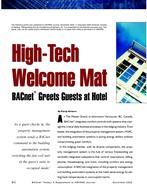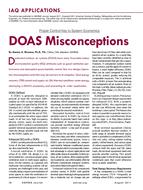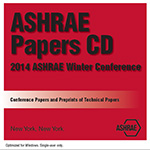Click here to purchase
Lithium-ion battery usage has increased dramatically in recent years due to greater implementation of grid-scale energy storage and the increasing market share of electric vehicles. Other applications that have increasingly relied on lithium-ion batteries include consumer products, information technology equipment, and medical devices, which have a need for a high density, low-weight, and often portable energy source. Subsequently, original equipment manufacturers are now expanding processes to include lithium-ion battery module and pack assembly, storage, testing, and remanufacturing. As with other industrial facilities, these areas require adequate ventilation to maintain appropriate indoor air quality. Currently, however, much of the guidance from ASHRAE and other standards bodies on the proper ventilation of battery systems are based on other types of batteries, such as NiCd or lead-acid, which can release hydrogen as part of normal operation, thus requiring constant ventilation. These requirements may not appropriately meet the needs specific to lithium-ion systems which do not release flammable or toxic gases under normal operating conditions but may do so under failure conditions, such as thermal runaway. There exists, therefore, a need to understand the conditions under which lithium ion cell venting can occur and the additional ventilation requirements during these events, and to apply this understanding in an effort to develop a standard or guidance document that can be readily applied by those engaged in lithium-ion battery-related processes. This paper outlines the fundamentals and basic functionality of lithium-ion batteries, analyzes considerations for designing ventilation strategies, and provides recommendations for future guidance.
Citation: 2020 Virtual Conference Papers
Product Details
- Published:
- 2020
- Number of Pages:
- 9
- Units of Measure:
- Dual
- File Size:
- 1 file , 1.7 MB
- Product Code(s):
- D-VC-20-C047


